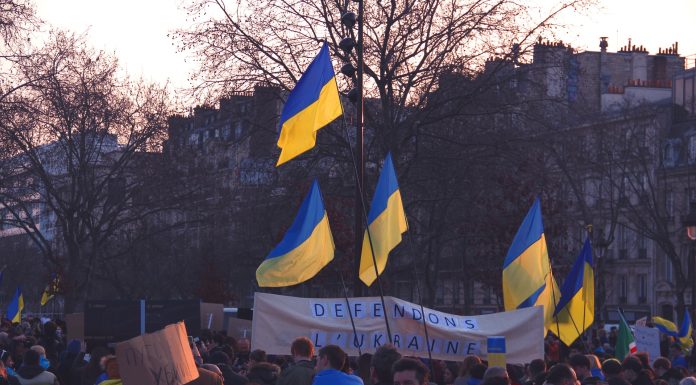By Franco Frattini, who has served as Italy’s foreign minister, as Vice-President of the European Commission and Commissioner for Justice, Freedom and Security, and as an Italian magistrate. The article has been reviewed and edited by Pieter Cleppe
Last week, the world lost a great statesman. President Sheikh Khalifa bin Zayed Al Nahyan, who served as President of the United Arab Emirates and ruler of Abu Dhabi since 2004, presided over a transformative era of change in the UAE, and the Middle East more widely.
Under the leadership of Sheikh Khalifa, the UAE has gone from strength to strength domestically, evolving into a champion of modernisation and moderation in the region. On the global stage, the country’s presence and influence has increased dramatically – through both diplomatic and economic engagement.
Sheikh Khalifa’s passing is an opportunity not just to reflect on the life of a figure who will no doubt leave his mark in the history books, but to reflect on the state of relations between the EU and UAE. In recent years, I have argued that the EU, and other major powers, have sometimes failed to grasp the importance of this relationship.
Sheikh Khalifa bin Zayed al Nahyan, the second president of the United Arab Emirates and the ruler of Abu Dhabi who shunned the limelight even as he oversaw his country’s remarkable transformation, has died at 73 https://t.co/miNFccNkuq
— The Wall Street Journal (@WSJ) May 14, 2022
Yet there is no doubt that the UAE has established itself as one of, if not the most crucial Western ally in the Middle East – positioning itself as a clear leader on several crucial issues.
First and foremost, its leadership has become one of the leading spokespeople for moderate Islam: serving as a focal point for moderate views from across the world and acting as a bridge between the Western and Islamic worlds. From the Pope’s first visit in 2019, to the normalisation of relations with Israel, the UAE has set an invaluable example for the rest of the world.
In a similar vein, the government has made significant commitments to standing with the West on counter-terrorism – from its role as an active member of the Global Coalition to Defeat ISIS, to its pioneering counter-radicalisation initiatives, such as the Sawab and Hedayah centres.
Sheikh Khalifa’s family has also spearheaded a change in attitudes towards renewable energy and climate change in a region which has been historically, and understandably, reluctant to embrace environmental reform.
In another context, the importance of co-operation on energy has come into sharp focus this year. As much of the world reels from the financial stresses brought upon by the situation in Ukraine and the global energy crisis, the UAE has been a steadfast ally for the West.
In March, the UAE was the first OPEC+ country to come out in support of increased production, forgoing the potential of increased profits in order to alleviate the cost-of-living crisis that has rippled across Europe, and the rest of the world.
The abrupt upheavals of the world order brought on by the Ukraine crisis has also underscored the importance of diplomacy. The global fallout has made clear that renewed investments in the EU’s relationships around the world – in the Gulf and elsewhere – are necessary.
This period of transition offers an opportunity for a meaningful renewal of our commitment to the partnership. The EU, and its international partners, should seek to double down on its strong relationship with Mohamed bin Zayed and his clear vision for the Middle East’s future.
While several initiatives have been encouraging in this regard, including increased engagement on climate changes, SDGs, digitisation, food production, and women’s empowerment – in other areas, a lack of alignment among EU member states has somewhat hampered progress in other areas. While some countries have proved eager to engage, others have proved ambivalent, or reluctant, and consequently, the EU has lacked unity on its policy towards the UAE (and the Gulf as a whole).
There are, of course, important areas of friction that cannot be ignored. Yet I strongly believe that by redoubling our commitments to a strong relationship we can positively and pragmatically work through these frictions, and reach mutually beneficial solutions.
This cannot happen if the EU does not present a united front, one which recognises the strategic importance of the Emirates and their strong record as steadfast proponents for our interests in the region.
As we reflect on Sheikh Khalifa’s legacy, it is important not only to acknowledge his transformation of the UAE into a formidable global power, but to recognise that he helped lay the foundations for a new era of ties between the West and the Middle East. Sheikh Khalifa was instrumental in repairing relations which were in tatters upon his accession to the throne, following 9/11 and the invasions of Iraq and Afghanistan.
In this spirit, both the UAE and the EU should continue to build on these sound foundations, and chart a path towards renewed commitment to partnership over the coming years.
It was my honor to join @VP Harris, @SecBlinken, and the rest of the United States delegation in the United Arab Emirates to offer condolences for the late President H.H. Sheikh Khalifa bin Zayed. https://t.co/aUwWGD4WLh
— Secretary of Defense Lloyd J. Austin III (@SecDef) May 17, 2022
Disclaimer: www.BrusselsReport.eu will under no circumstance be held legally responsible or liable for the content of any article appearing on the website, as only the author of an article is legally responsible for that, also in accordance with the terms of use.













